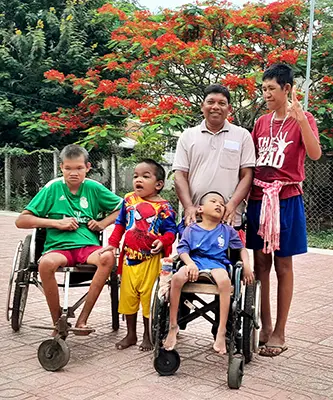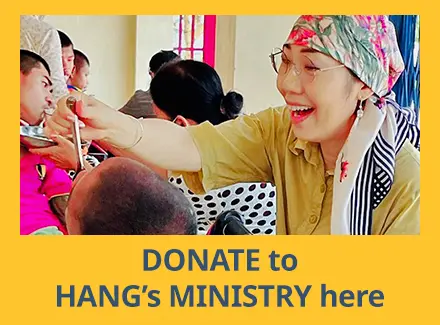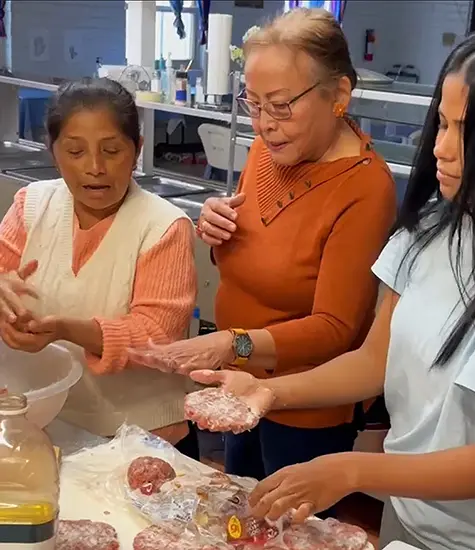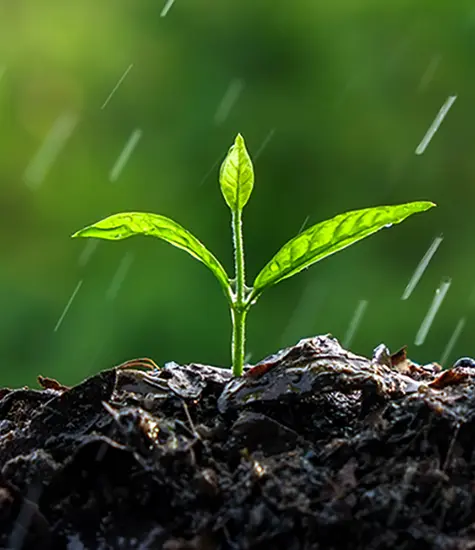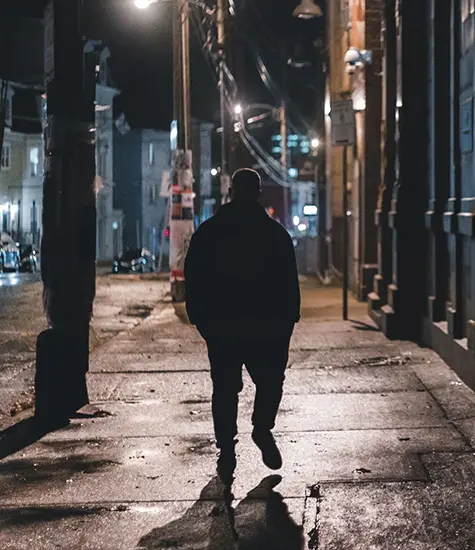Fall 2023 newsletter
Hang Tran, Cambodia
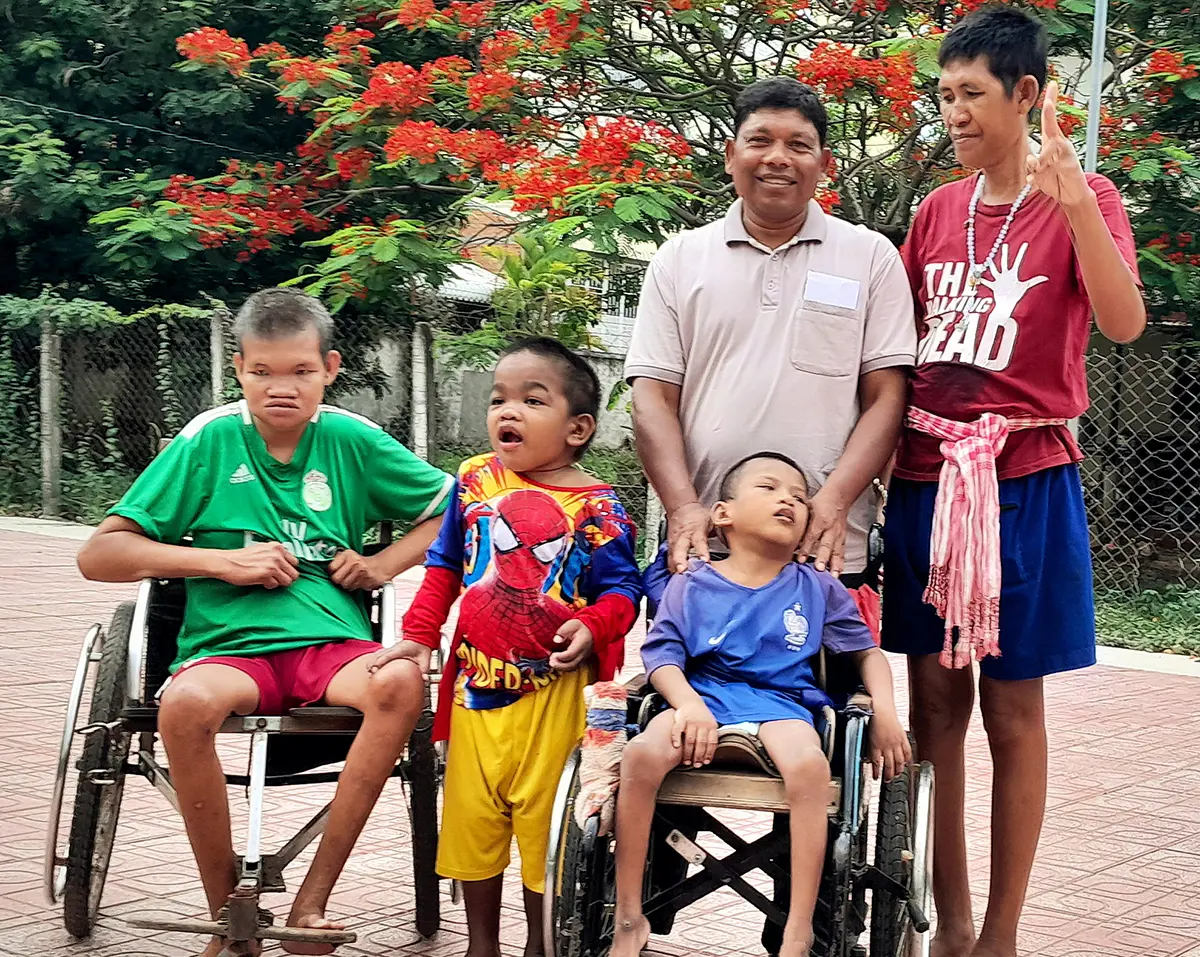
Brother Barnabas with differently abled youth
In honor of the Extraordinary Month of Mission, I’m relaying the stories that friends in mission generously shared with me. They open my eyes to the role that each of us has in the faith journeys of others.
Brother Barnabas is a Missionaries of Charity Brother. He belongs to the Munda tribe, one of the indigenous tribes of India. He speaks several languages — Mundari (the language of his Munda tribe), Sadri (a shared language of several indigenous tribes), Odia (the official language of the State of Odisha), Hindi and English. During his more than 25 years in mission, he has also learned Japanese and Khmer.
Who did his tribe worship? Since ancient time, his tribe worshiped nature, and they have been good stewards of the water, land and jungles, as their lives intertwined with those of the environment. The British colonization had many very different impacts on the local cultures. One of the impacts that he appreciates was the arrival of the Christian missionaries.
What attracted tribal folks to Christianity? The Indian caste system had operated on domination and superiority. The colonial system added more layers of the same. Somehow, Christianity was able to disrupt the violence and suffering caused by such structural injustice. It elevated the status of oppressed, “backward” tribes to children of the Most High.
Tangibly, the foreign followers of this religion introduced tools to level the social economic fields, such as access to the rules of law regarding land ownership and commerce with larger populations, education and healthcare, to name a few.
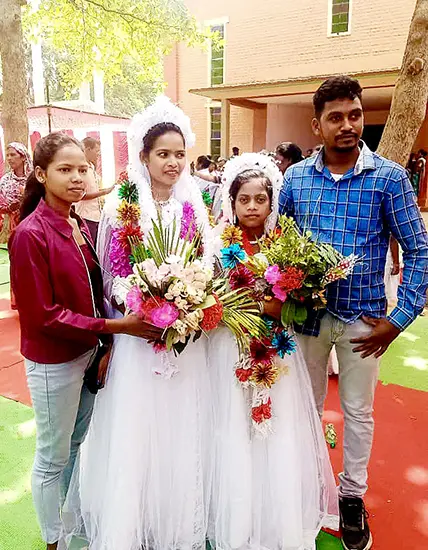
Second from right, a niece of Br. Barnabas at her first communion and confirmation
Brother Barnabas’s parents were the first of their clan to convert to Catholicism. They were pointed to a power higher than nature — its creator. That was appealing to tribal people. Nature was still being revered; however, the target of worship was transferred from the created to the creator. All these were crucial in faith development and the contextualization of their spiritual heritage.
The seed of new faith had just sprouted, while poverty and hunger were persisting. Brother Barnabas attributes the slow but steady growth of faith in his family to his mother’s devotion to prayer. Each evening she gathered all family members together for prayer. “We may not have food in our tummy, but we have breath, and for that we must thank the Lord, and do as best as we can each day,” he recalls his mother saying, as she encouraged his dad and the children.
His parents toiled the land to provide for seven kids. They prioritized education over child labor, so their children could go to schools. He was among the first from his village to be educated as a religious brother — a personal accomplishment, and an honor for the indigenous tribes in the wider society.
One of Brother Barnabas’s nieces, who just received the first communion and confirmation sacraments, wants to become a religious sister. Thus far, his tiny tribal village of 30 families has already produced the vocations of 10 religious, who are missionaries now in various foreign lands.
I have recently been accompanying seminarians and novices in activities with the differently abled folks and helping them with English. They are undergoing formation in Cambodia, Thailand, Myanmar and Korea. Their vocation paths vary, yet have a common theme of being inspired by a role model. What did you learn in philosophy? “Love and freedom,” one told me, and then added, “Not so simple!”
I am in awe to be a part of all creation that is on roads of transformation. Each comes from a different vantage point; each is a portal for travelers to molt outdated selves, to be born into new realities.
Jesus invited a little child to stand among them. “Truly I tell you,” he said, “unless you change and become like little children,
you will never enter the kingdom of heaven.” (Mt 18:2-3).
Please consider supporting my mission work at the Home of Hope with a donation through the link below.
I invite you to walk with me as a “COMPANION IN MISSION.” Companions in Mission are friends and generous donors who give financial gifts on a regular (usually monthly) basis. For more information, visit Become a Companion in Mission. Thank you so much for your generosity!

